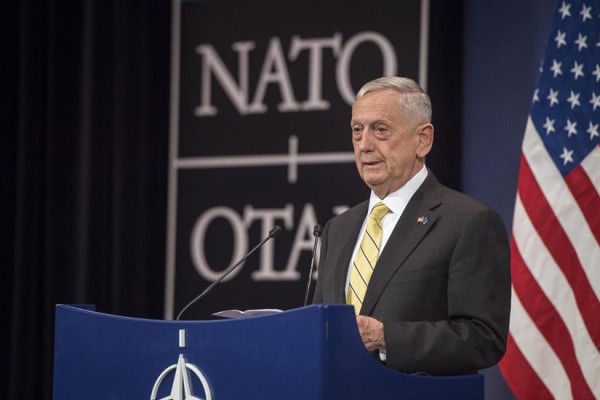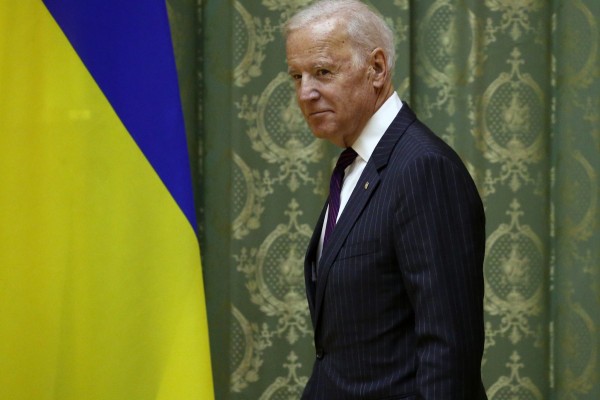Neither Washington nor Moscow: Five reasons progressives must be wary of playing Putin’s game
We may not trust the UK government, but Putin is no friend of global justice

Imagine a far-right government came to power in the UK and immediately set upon arresting or killing anyone that opposed it. The UK immediately moves to bolster its ideological friends across the continent, ordering City banks to grant financing to people like the French far-right leader Marine Le Pen. As part of this nationalist fervour, the UK invades and annexes Britany “to liberate Bretons from the French yoke” and sends in troops to enforce the “peaceful reunification” of the British and Irish peoples. A bombing campaign is begun against Catalonia in support of a similar neo-Francoist government in Spain in which Barcelona is devastated. Domestically, the government reintroduces a stronger version of Section 28 banning ‘gay propaganda’ and concentrates wealth into the hands of kleptocratic elite.
Outlandish? Yes. But events very similar to this have unfolded in Vladimir Putin’s Russia. So why do some of my friends in the social justice movement appear to accept Kremlin propaganda at face value, or are at least reluctant to criticise his regime—particularly since the poisoning of Russian double agent Sergey Skipral?
I get it. People are understandably skeptical of pronouncements from the UK government and the intelligence services. Especially when these are mediated through that most untrustworthy of mouthpieces—Boris Johnson. The shadow of the 2003 Iraq ‘dodgy dossier’ looms particularly large in the collective consciousness of my generation. But it still shocks me that many of these people do not apply the same skeptical approach to the propaganda of a far-right Russian regime.
It is with some trepidation that I write this. I have family in the former Soviet Union and while I know that I am nowhere near important enough to earn anything like the ‘Skipral treatment’, I do worry that what I write may have consequences. And I am very aware of the divisive nature of this debate.
But the longer Kremlin narratives flourish in progressive circles unchallenged, the worse the consequences will be for those repressed by the Putin regime who need our solidarity, whether they be in Moscow, Grozny or Ghouta. So here I will debunk a few of the myths that are doing the rounds now on Russia:
MYTH: Skipral’s poisoning was part of a UK establishment push to have Russia be seen as an ‘enemy’
REALITY: The UK’s business and political elite are closely intertwined with Russian oligarchs close to Putin
London is the playground of the Russian elite, from familiar names like Roman Abramovitch to the less familiar, including Russia’s 3rd richest man Alisher Usmanov and oil baron Mikhail Fridman. It is estimated that Russian oligarchs have given the Conservative party between £1.8-£3 million since 2010. Russian oligarchs love it here because of the relatively low tax and the blind eye we turn to the ways in which they earned their wealth. They are also closely intertwined with the City and keep swathes of well-paid lawyers, bankers and accountants in business.
The idea that it is in the UK’s interest to start a conflict with Putin is ridiculous. While it is true that some within the defence establishment may use this as an excuse to lobby for bigger budgets, most of the UK establishment is quite happy to be on good terms with Russia. If the UK were to pick an enemy to justify greater military spending, it would not be a nuclear power with so much money invested in the UK.
Indeed, it is telling that while Jeremy Corbyn rightly called for sanctions to hit the oligarchs, Theresa May’s “tough talk” on Russia hasn’t yet delivered any substance. The oligarchs have so far remained untouched.
MYTH: Russia has been encircled by pro-Western governments and is therefore justified in fighting back in places like Ukraine
REALITY: Being surrounded by governments you don’t like is no excuse for military intervention
The idea that Russia is defending itself against Western aggression has a superficial appeal to many. The fall of the Berlin Wall in 1989 and the colour revolutions of the 2000s in places like Georgia and Ukraine left Russia surrounded by governments determined to assert their independence from Moscow. While these governments should be criticised for pursuing disastrously neoliberal policies, they were not pulled into the Western orbit under the barrel of a gun. They did so because they, rightly or wrongly, saw the alternative as Russian imperialism.
In any case, being surrounded by countries with governments you don’t like does not justify military intervention.
A revealing comparison for anyone with doubts about this is the pink tide in Latin America in the 2000s. Would any progressive argue that because the USA was ‘encircled’ by left governments in Latin America, it would therefore be justified in invading Venezuela, Nicaragua, Bolivia, Ecuador and Cuba?
Of course, that’s not to say that the West is blameless in its approach to Russia. Back in the 1990s the West pushed Russia down the path of “shock therapy” capitalism that drove millions into poverty and created the oligarchs that now form the backbone of Putin’s system. Russians have every right to be angry with both their own elite and countries like the USA. But we should stand in solidarity with the people against both, not support the imperialist dreams of Russia’s leadership.
MYTH: Russia went into Ukraine to stop a fascist coup
REALITY: Russia started an illegal war to bolster its own interests – just like the US and UK in Iraq
The Kremlin propaganda machine has been quite successful in convincing people that it intervened to ‘save’ the people of Crimea and Eastern Ukraine from a fascist coup. Like many revolutions, the ‘EuroMaidan’ revolution of 2014 was complex. Yes, fascist parties like Right Sector and Svoboda, did support it as did some Ukrainian leftists. For a few months, the far-right even controlled a few posts in the interim government. But as the later election results showed, these were fringe elements in Ukrainian society. The two main far-right parties got 4.7 percent and 1.8 percent respectively in the 2014 election. The revolution occurred to demand European integration and was mainly backed by liberals.
However, the Russian side was strongly backed by its country’s far-right. Fascist thinkers like Aleksandr Dugin (sometimes dubbed Putin’s Rasputin) had the ear of high-level Russian officials. They had long been calling for the establishment of a Eurasian Empire and the invasion of Ukraine. Indeed, the leaders of the pro-Russian forces that took east Ukraine were overwhelmingly far-right. Pavel Gubarev, the first pro-Russian ‘peoples governor’ of Donetsk has a past as a uniformed neo-Nazi. Aleksandr Zakharchenko, the president of the Donetsk republic called for Russia to invade and conquer the UK. Another backer of the invasion, Vladimir Zhirinovskiy, the leader of Russia’s 3rd largest party, once famously said that Russian soldiers should be “washing their boots in the warm waters of the Indian Ocean”.
Ultimately, while there were fascists on both sides (and more powerful ones on the Russian side) Russia invaded Ukraine because this served its geopolitical interests. Similar considerations lay behind the earlier invasion of Georgia (though that was another complex situation) where ethnic-Georgians from the Russia-occupied regions of Abkhazia and South Ossetia were ethnically cleansed, often with entire villages being burned down.
MYTH: Putin may not be perfect but he is a useful counter to Western imperialism
REALITY: Putin’s regime has committed terrible human rights abuses and he backs the far-right
Putin came to power on the back of a brutal war in Chechnya in 1999 that destroyed the capital Grozny and cost hundreds of thousands of lives, mostly innocent civilians. There was barely a murmur of protest from the West. In fact, Tony Blair fell over himself to ingratiate himself with the person dubbed at the time the “butcher of Grozny”.
Putin later extended his crackdown to the rest of Russia, starting by closing independent media and going on to repress civil society, LGBT rights and ramping up nationalist rhetoric. Putin critics such as journalist Anna Politkovskaya, who had exposed the scale of brutality in Chechnya, wound up dead. Similar fates awaited defectors like Aleksandr Litvinenko who was famously killed with radioactive Polonium in his tea. The likely killer is now an MP in Russia. Further afield Russia is supporting and financing far-right groups across Europe, including probably facilitating a big bank loan for Marine Le-Pen’s party in France, and backing the election of Donald Trump.
Now Russia is involved in a war in Syria to bolster Putin’s ally Bashar Assad. Assad and Putin are accused of deliberately targeting hospitals. As I write, the town of Ghouta near Damascus is being reduced to rubble with hundreds of civilians dying every week.
MYTH: Putin may be bad but he’s not our problem. We should focus on our own elites who are just as bad.
REALITY: People oppressed by Putin need our solidarity
Rightly, many of my fellow social justice campaigners stand in solidarity with Palestine against Israel, with Catalonia against Spain and with various Latin American countries against the USA. The fact that our own government is bad, is rarely used as an excuse to get out of our solidarity obligations with people stuck in blockaded Gaza.
So why, when it is children being bombed by Putin and his proxies in Ghouta, when it is my friends and acquaintances in Eastern Europe being ethnically cleansed and oppressed, when Russian tanks roll into more countries, is there such silence?
Some even go as far as taking the side of the oppressor, hailing Russia’s moves as part of an “anti-imperialist” fightback against US power, as if only the West is capable of imperialism.
Thankfully, there are some who take a more supportive stance. John McDonnell has backed the Ukrainian Solidarity Campaign. But there needs to be more support for embattled supporters of social justice in Eastern Europe and Syria—hated both by their own neoliberal and far-right opponents and ignored by their supposed friends in the West.
It is not good enough to say “what about Iraq” in response to every Russian atrocity. Why can’t we follow so many from previous generations in declaring “neither Washington nor Moscow”? Why can’t we stand united against ALL imperialism, whether it be coming from the White House or the Kremlin?
As early as 2003, when I marched through the streets of London alongside hundreds of thousands of others to protest the war in Iraq, I was aware that if it were my family being bombed by Russia, my friends being expelled from their homes, I would be marching alone. My fellow activists, would by and large, stay at home. And then, as now, I found that very painful.
Nina Levchenko is an activist and expert in post-Soviet politics based in the UK. She writes under a psuedonym.
This article originally appeared on OpenDemocracy.net.










